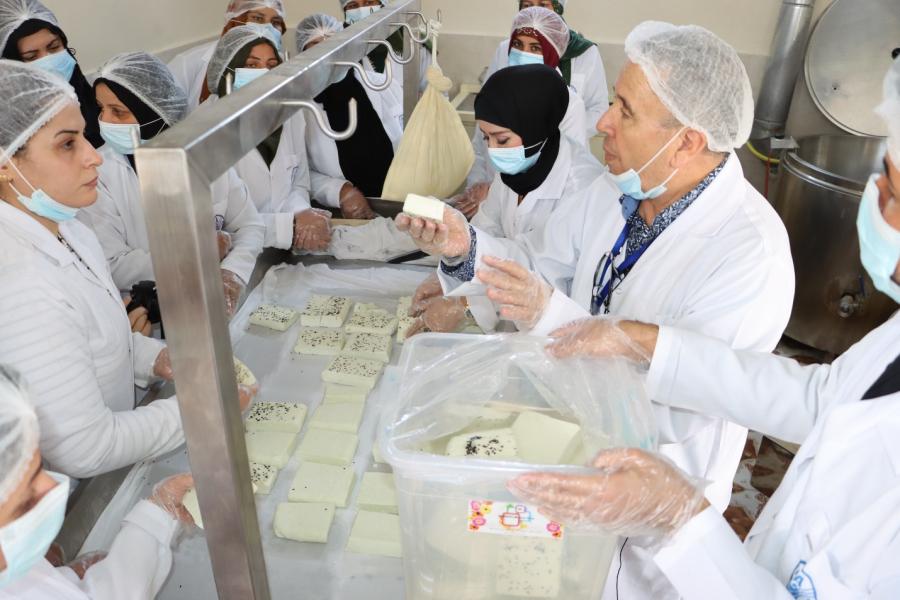The Food and Agriculture Organization of the United Nations (FAO) Restores Hope to Rural Women in the Traditional Dairy Processing in Nineveh Governorate
١٧ تشرینی دووەم ٢٠٢١
As part of its efforts to develop and diversify livelihoods, the Food and Agriculture Organization of the United Nations (FAO) is working to empower rural women and restore hope to returnees through the project “Support to livelihoods of rural and peri-urban returnees and communities in Ninewa Governorate, Iraq, funded by the European Union and implemented in close cooperation with Ministry of Agriculture (Nineveh Directorate of Agriculture).

It aims to develop the value chain of milk production, processing, and marketing of traditional dairy at the home level within the framework of practical training courses that will last for a period of six months to involve 50 women groups (1,000 women) from all project target sites in Nineveh Governorate, The project organized training courses entitled "Improving the Processing and Marketing of Traditional Dairy Products" from 7 to 11 November 2021, in the presence of 50 women from Bartella and Al-Hamdaniya Districts. Participants gained techniques on good practices of handling and processing dairy, while implementing an illustrative practical demonstration for making traditional dairy products (Laban, cheese, butter, ghee, labneh).
This introduction of new techniques on how to make different types of cheese, to get healthy and safe dairy products along with ideas for making great products that can be competitive in the market. Also, participants received training on the correct milking methods for cows and buffaloes and how to follow the steps of milk hygiene and animal health standards.
During the training period, which lasted for five days, the FAO Representative in Iraq, Dr. Salah El Hajj Hassan praised the efforts made in the training and stressed the active participation of women's groups and their keenness on the courses, expressing that this comes among the priorities of the organization to find a real partnership for these groups, and that these practical courses will improve the capacity of the private sector in the dairy industry. Dr. Salah El Hajj Hassan also highlighted that the priorities of the FAO are to seek a real partnership with these groups and empower them to support their families independently, emphasizing the need to activate their role. Furthermore, adding that these courses will improve the competitiveness of the sector and contribute to the local development process and the development of the quality of the dairy products.
While the FAO International Livestock Expert, Dr. Chedly Kayouli, the supervisor and trainer in these courses, said that the practical training on the processing of new cheeses, are delivered in a participatory and interactive approach, this is what reflects the spirit of teamwork and self-development. Also, it contributes to the introduction of expertise to produce new types of cheese produced for the first time by rural women at home level in Nineveh, such as the manufacture of Akkawi cheese, Halloumi, Mozzarella, Double cream, Ricotta and Labneh. The attendance and interaction during the workshops were very fruitful and encouraging, and the participants showed great interest in learning basic and new ideas and practices in dairy processing, while a family atmosphere prevailed during the trainings.


